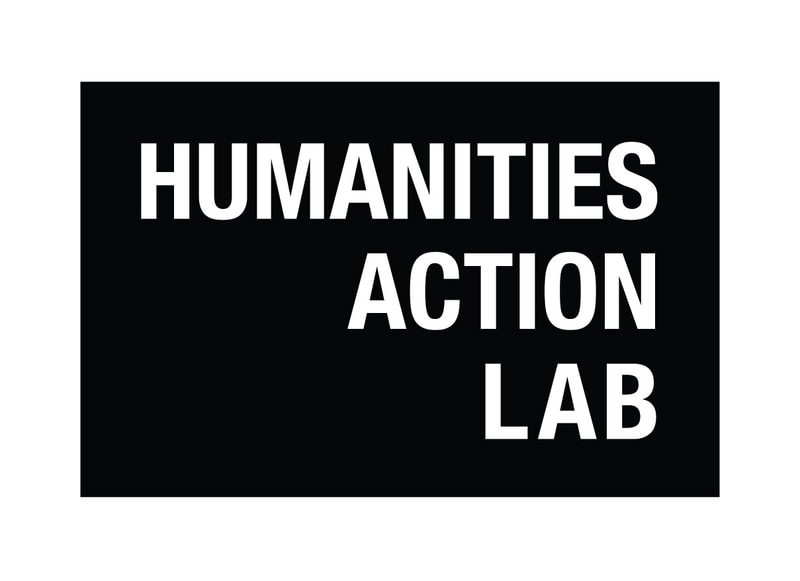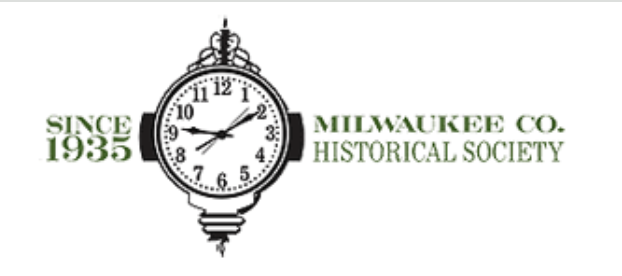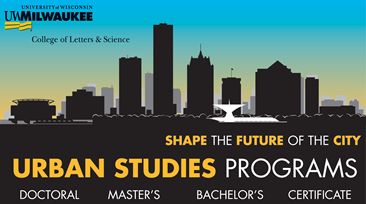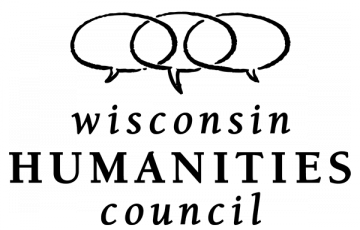International Traveling Exhibit on Environmental Justice Opens at Milwaukee Country Historical Society, April 11, 2024, to May 31, 2024.
Public ProgrammingThursday, April 4, 2024, 11:00-2:00 PM,
DOING ORAL HISTORY UNDER DIFFICULT CIRCUMSTANCES UWM Library 4th Floor Conference Room Panelists and discussion leaders: Kavita Panjabi, Former Professor, Comparative Literature, Jadavpur University; Chia Youyee Vang, Vice Chancellor and Professor, History, UWM; Lynne Woehrle, Director, Master of Sustainable Peacebuilding, UWM; Portia Cobb, Film, Video, Animation & New Genres, UWM; Xin Huang, Chair, Women’s and Gender Studies, UWM. For details, registration, and panelist bios go to bit.ly/3SNHKKR Thursday, April 11, 2024, 6:00 PM A History of Black Milwaukee with John Gurda Milwaukee County Historical Society, 910 N. Dr. Martin Luther King Jr. Drive Registration: https://square.link/u/tpOhma8r Friday, April 19, 2024, 5:00–7:00 PM, Exhibit Opening, Gallery Night, Milwaukee County Historical Society, 910 N. Dr. Martin Luther King Jr. Drive Thursday, April 25, 2024, 9:00–11:30 AM, Naturalization Ceremony, Milwaukee County Historical Society, 910 N. Dr. Martin Luther King Jr. Drive. Saturday, April 27, 2024, 11:00-12:30 PM, Collecting Voices. A Panel Discussion on Milwaukee Oral Histories with James Levy, Kitonga Alexander, Sandra Jones, Mike Carriere, and Arijit Sen Milwaukee County Historical Society, 910 N. Dr. Martin Luther King Jr. Drive April 29–May 13, 9:00-5:00 PM City Hall Pop-Up Exhibit, City Hall Rotunda, 200 E. Wells Street, Milwaukee, WI 53202. Friday, May 3, 2024, 4:00-6:00 PM, THE URBAN FORUM AT CITY HALL Hearing Community Voices City Hall Rotunda, 200 E. Wells Street, Milwaukee, WI 53202. A pop-up exhibit and a panel discussion will gather community leaders, residents, university scholars, students, and city officials to explore why community voices are important and how they should be heard. Panelists, Supreme Moore Omokunde, Member of the Wisconsin State Assembly, Evan Goyke, Milwaukee City Attorney, Lafayette Crump, City of Milwaukee Commissioner of City Development, Sharaka Berry, Community organizer, Stephanie Harling, Havenwoods Neighborhood Partnership, Executive Director, and Camille Mays, Peace Garden MKE, Community Healer, Community organizer For registration go to bit.ly/3TBNk4F Saturday, May 25, 2024, 10:00-2:00 PM Half-Day Symposium on Collecting Silenced Histories, 910 N. Dr. Martin Luther King Jr. Drive, with Ricia Anne Chansky, Director, The Oral History Lab @ University of Puerto Rico at Mayagüez, Bryan Ramos Romero, Graduate Student, UPRM, Antonio Ramirez, Associate Professor of History, Elgin Community College, and others. Gardeners Summit, Saturday, June 1 –11:00-1:00 @ Unity Orchard Storytelling event with gardeners from 3 local gardens and other food activists. Registration: Weekly Gallery Tours UWM Student-led every Wednesday at Noon, begins April 23, 2024, to May 29, 2024. |
Climates of Inequality: Stories of Environmental Justice is an international traveling multimedia exhibition and web platform. Featuring local Milwaukee stories, the exhibit runs from April 8 through May 31 at the Milwaukee County Historical Society (910 N Dr. Martin Luther King Jr. Drive) Companion events, including a public forum at Milwaukee City Hall, will occur throughout the run of the exhibit. The project overall involved a coalition of 500+ students and community members across the Western hemisphere with the finished exhibit traveling to 17 cities in the U.S., Puerto Rico, the Bahamas, Mexico, and Columbia in addition to Milwaukee. The local stories originating from community members throughout the Greater Milwaukee area were collected by UWM students from a variety of social science disciplines associated with the Buildings-Landscapes-Cultures Public History Field School under the direction of Professor Arijit Sen.
Since 2019, this team explored the roots of climate inequality and environmental injustice by collecting local personal experiences and ideas for change and curating a collective display that includes virtual reality, audio testimony, and imagery. The exhibition explores how the climate crisis and environmental injustice are intensifying inequality and how the experiences of the hardest-hit, front-line communities hold the keys and creativity to confronting these issues and find ways to move forward. “In Milwaukee, the lack of access to healthy food and good housing in Black and Brown communities is a result of a long history of purposeful disinvestment, racism, and bad urban policies. Yet the roots of these problems and solutions to them remain invisible to those who are outsiders. Our project narrates stories of ordinary people doing extraordinary work around housing, health, and food justice; they have resisted, struggled, and succeeded against forces of disinvestment and injustice. We challenge our audience members to act in ways that address the root cause of environmental inequities,” notes Sen. Ben Barbera, Executive Director and President of the Milwaukee County Historical Society sees this exhibit as the beginning of the Society’s plans to develop an oral history collection that reflects the stories of ordinary Milwaukeeans. Barbera added, “Documenting the stories of all Milwaukeeans is essential to our mission to preserve and share the full and often undocumented history of Milwaukee County. By hosting the Climates of Inequality exhibition and working with local partners from UWM and other organizations, the Milwaukee County Historical Society is embarking on an ambitious program to become a historical resource that represents and serves everyone in the County.” The exhibition opening event is on Friday, April 19, 5:00-7:00 PM, but the exhibition opens to the public on April 9, 2024. Public programs that complement the exhibit’s theme include workshops, a city hall pop-up exhibit and discussion panel, symposia, student-led gallery tours, and a gardener’s summit. Explore the That Unfinished Work Project, a vibrant showcase of diverse local stories. From community elders to grassroots activists, historians, and scholars, our exhibition uncovers the varied narratives woven into Milwaukee's fabric. Climates of Inequality is a project of the Humanities Action Lab, hosted by Rutgers University-Newark. Partners, funders, collaborators: Humanities Action Lab, Rutgers University, Newark, NJ, Milwaukee County Historical Society, the UWM Urban Studies Programs, the Maier fund, Office of Undergraduate Research, Center for Economic Development, Center for Student Experience and Talent, Buildings-Landscapes-Cultures Field School, Department of History at UWM, Hj Bullard, SImone Ferro, Mike Carriere from the Growing Resistance Team
|






